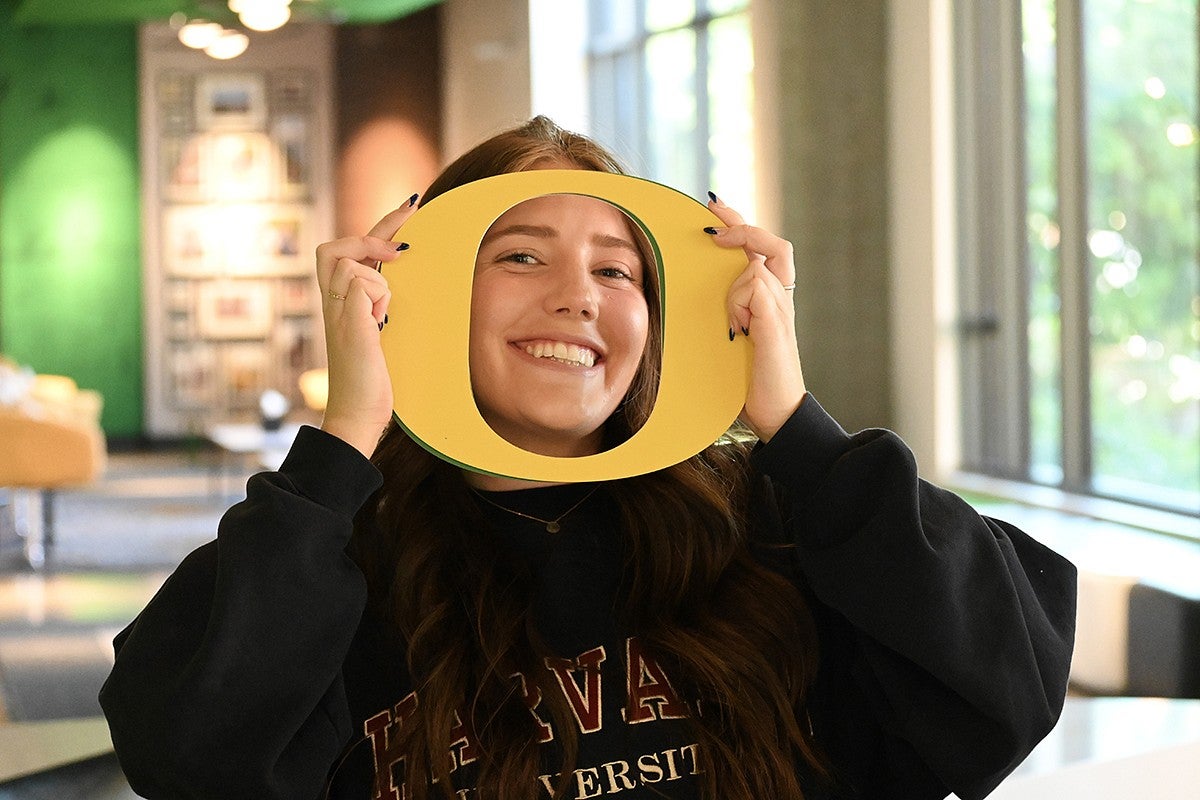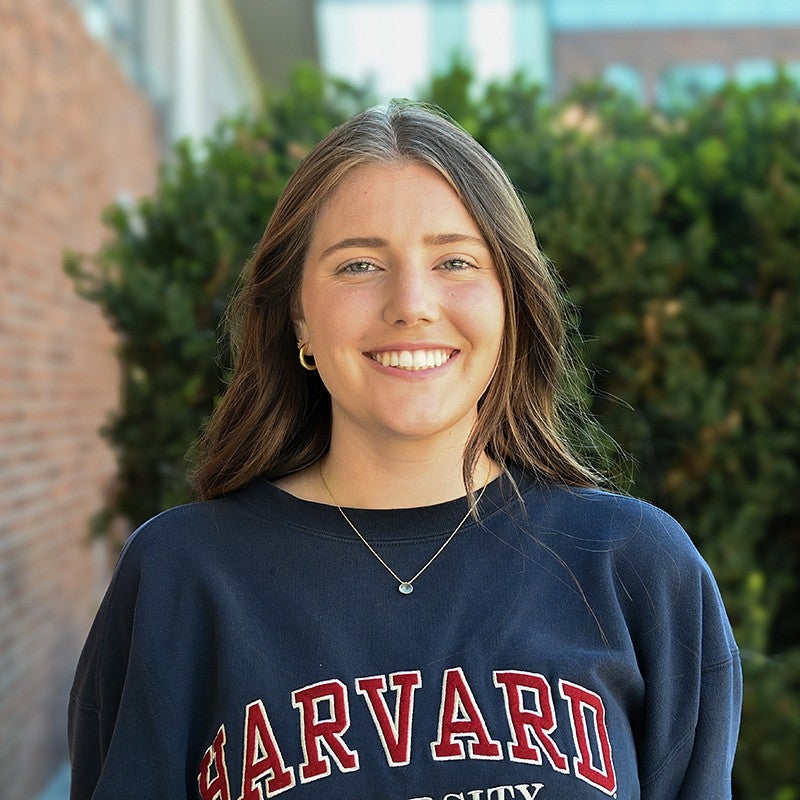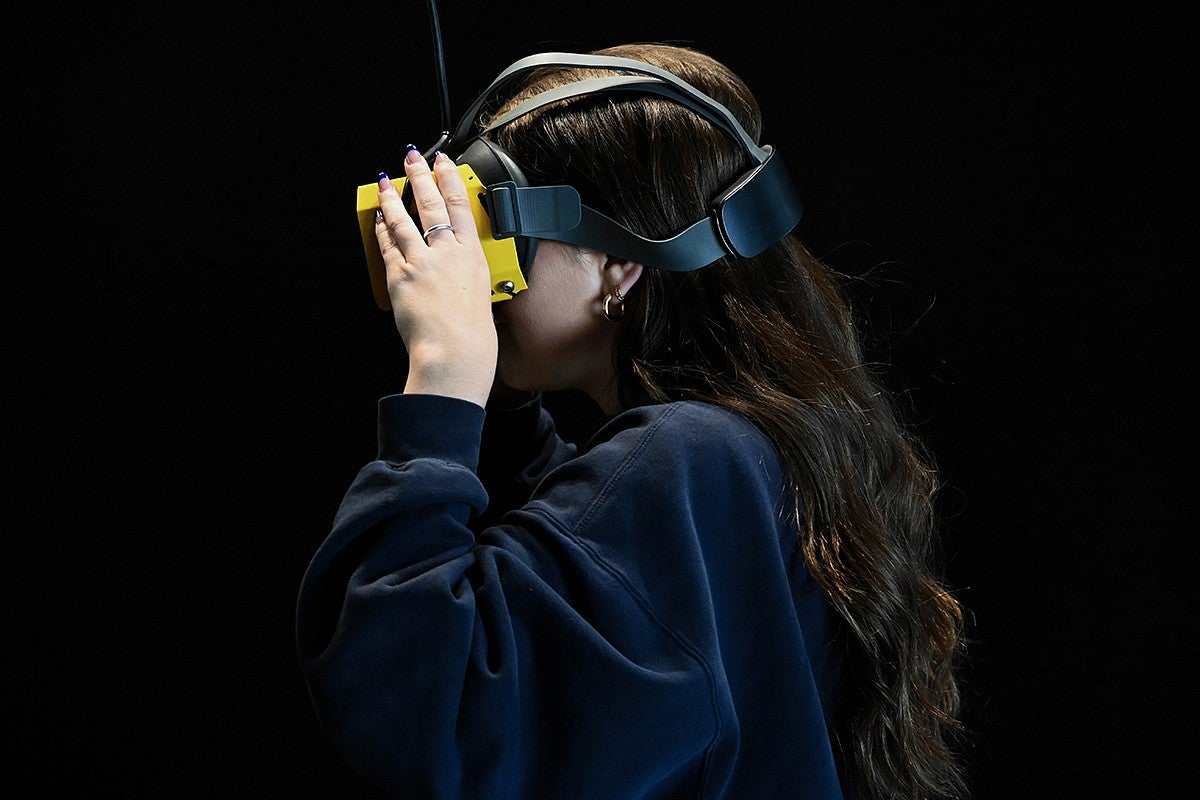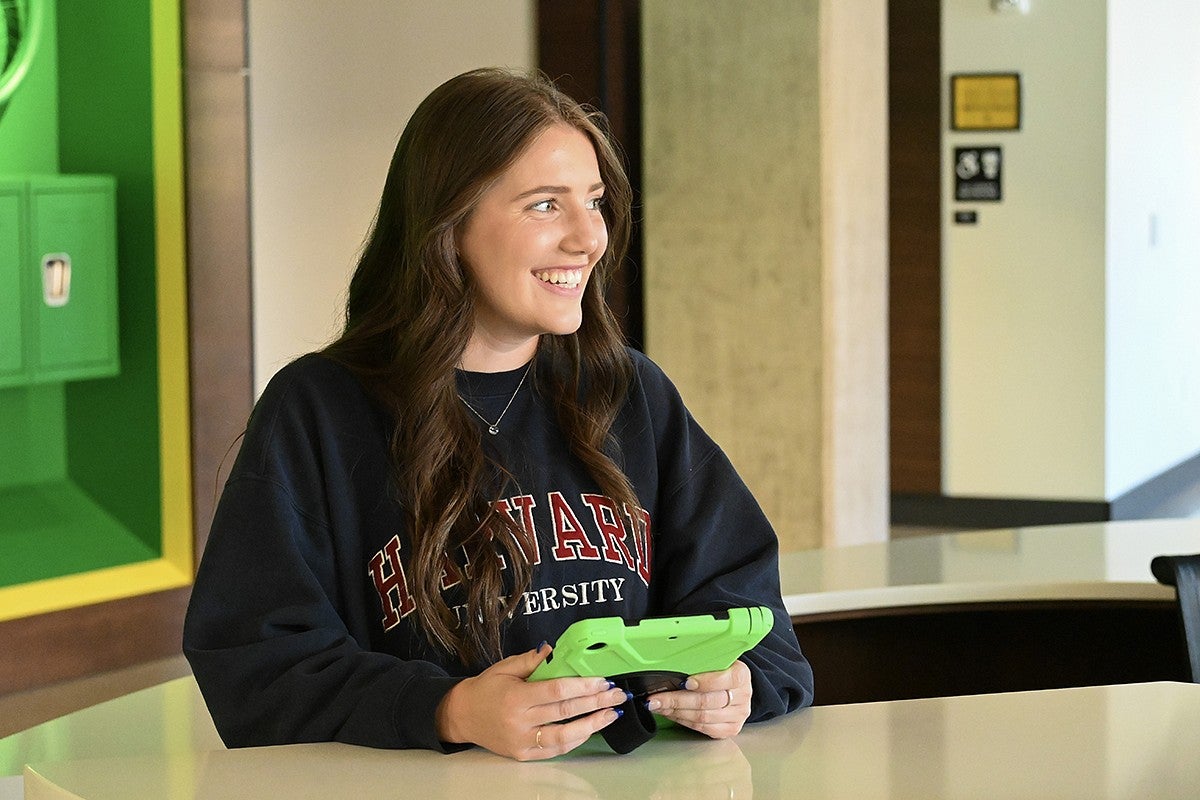
A place for everyone
Eden Henry remembers what it was like growing up in Huntington Beach, California, as a part of the political minority of Democrats in her hometown.
From a young age, she had been interested in politics and voting, asking her dad to relay the election results to her from the morning news. But it wasn’t until high school when she realized that her family’s politics could be a source of isolation.
Around the time of the 2016 election, Henry was walking through the halls feeling judged and looked down on. When one of her friends made a hurtful remark about her beliefs, she took it to heart. “I just started sobbing in class,” she remembers.
Instead of letting the experience of political isolation bring her down, Henry decided to study it. Years later as a senior at the Clark Honors College, Henry focused her thesis on the mental wellbeing of college voters and the ways higher education can provide resources for first-time voters of all beliefs.
After completing her degree in political science with a minor in legal studies, Henry’s experiences with learning disabilities, mental health advocacy and her passion for education are taking her to Harvard University for her master’s in education leadership.
Learning to overcome
Throughout Henry’s childhood, she knew that if she was good at one thing, it was school. “It came very naturally to me,” she says.
Her parents, her grandparents and even their parents had worked as educators, and now, she’s hoping to carry on the legacy.

Eden Henry
Major: Political science
Minor: Legal studies
Thesis: “An Evaluation of Well-being in College Voters During Election Cycles”
Describe your experience at CHC: Noteworthy, collaborative, good old-fashioned fun
Advice to incoming first-year students: Take classes outside your comfort zone that just seem interesting to you. You won’t know what you like until you try it.
One decision that made all the difference: Applying to be a student ambassador changed the direction of my future dramatically.
Advice on the thesis project: Think big picture and don’t sweat the small stuff.
One thing that got you through college? Dutch Bros tea and “New Girl”
This summer, I can’t wait for: The sun.
What I’ll miss most about the CHC: I will miss the connections I have made with both the faculty and my peers.
I’m grateful for: The people I’ve met over the past four years.
Where I’m headed next: Harvard University for a master’s in higher education.
Growing up, her mom and dad stressed the importance of school, but they weren’t overbearing, she says. It was an agreement. “You will go to school (and) you will do your best,” her parents told her, “because it’s a privilege. It’s an opportunity.”
Their words stuck in Henry’s head from elementary school on as she consistently brought home A’s on her report card. It was far from easy.
When Henry was young, she was diagnosed with apraxia, a motor-functioning disability that makes completing prompted tasks near-impossible.
When Henry got called on in class, she says it felt like her mind and body were “shutting down.” Even if she’d completed the reading 20 minutes before, it was like she hadn’t retained a thing.
Her mom had her seen by doctors and enrolled in speech therapy classes, and always continued supporting and pushing her.
Henry remembers countless nights spent at her desk, crouched over her history book. Her eyelids began to droop as it approached 2 a.m. and, because of her apraxia, she struggled to read the words on the page. She remembers telling her mom: “I just want to go to sleep. I don’t want to go (to school) tomorrow. I don’t want to do it.”
Henry’s mom simply grabbed a chair and started reading the chapter aloud. “It was never like, ‘You’re alone in this’,” Henry says. “(She) pushed me because she knew I could do it.”
Henry had a choice. She could let her learning disability hold her back or she could work even harder to succeed in her classes. Her mom’s advocacy, her family’s support and her love of school made the choice easy.

In high school, Henry was challenged more than she ever had been. While she had gotten the hang of succeeding with her disability, a new obstacle presented itself.
Her sophomore year of high school, the heightened difficulty of her classes and the social pressure of living in Orange County, surrounded by “influencers, wannabe influencers, the poor, the rich, and Q-anon” began to take a toll, she says.
“You tend to compare yourself to the people around you, idolizing those people who are driving a Jeep Wrangler, walking into school with a Tesla or their $7 million purse,” she says.
At one point, she started skipping class, “which is not like me,” she remembers. And she was getting tired and emotional. “I cried about school every single week,” she says.
It was her first time dealing with issues around her mental health, but it was hard to identify. She had to ask herself: “What is this feeling of feeling insecure? Why do I feel like out of sorts or not wanting to go to school?”
Luckily, her family was always open about their own mental health, and the importance of taking care of yourself. Her mother had worked as a special education coordinator for mental health and emotional intelligence when Henry was growing up, working with students just like her.
So, Henry looked for resources at her school that could help. When she didn’t find any, she was shocked. Her school had hundreds of clubs, but none focused on mental health awareness.
Henry decided she would start her own. She organized meetings, presented concepts and helped students practice self-care. The club was a hit, and “almost every single person” mentioned the impact the club had had on them and how grateful they were that it had been created.
But Henry couldn’t have done it alone. Her family’s support was one thing, but her math teacher was especially supportive of her mental health and academic ambitions. Henry remembers Christopher Soch as one of her biggest supporters. “When I didn’t want to talk to people because I was having a bad day,” she recalls, “he was always someone that I could just sit (with).”
Her senior year of high school, Henry couldn’t wait to go to college. She told anyone who would listen where she was applying, including Soch. He was the first person who truly believed in her academic value, she says.
When she told him about her dream schools, he encouraged her to apply. “You deserve it,” she remembers him telling her. When she got into the University of Oregon, outside of her family, he was the one she emailed.
Finding comfort in higher education
Henry’s first year at the UO was during the COVID-19 pandemic, which she says allowed for a smoother transition. She got to spend time with her family and ease into the college courseload.
Once school was back to in-person classes, she became a tour guide for the Honors College. It’s how she met her mentor, Paula Braswell, the CHC director of admissions, belonging and family engagement at the CHC.
Braswell says she saw firsthand how Henry made the Honors College feel welcoming for new and prospective students. “Eden has an exceptional work ethic,” Braswell says. “Multiple prospective students and parents have reached out afterwards to extend a special thank you to Eden.”

For Henry, Braswell’s work in admissions provided inspiration for her own career. And so did her thesis. Her research on mental health advocacy and resources in the higher education setting has motivated her to make changes in the academic setting.
When Henry began applying for master’s programs, she quickly realized that the best schools were on the East Coast, far from her family and the UO. But she says it was time to make the trek.
Initially, Harvard hadn’t even been on her list. As she was submitting her final applications, her aunt asked her if she had applied to the prestigious school. Her aunt had mentioned it as a joke, adding “not that you would get in.”
Henry’s competitive spirit kicked in and she thought: “If she doesn’t think I could do it, I’m going to prove her wrong.”
Just as Henry had proved her teachers and peers wrong when they underestimated her, her application was accepted, and her journey to Harvard began.
When she finishes, Henry wants to work in admissions or student services at the collegiate level. She wants to help students find resources that allow them to succeed, whether it be academic, disability services or mental health resources.
“No matter where I work,” she says, “I would like to relay that positive message of ‘higher education is for everybody.’”

